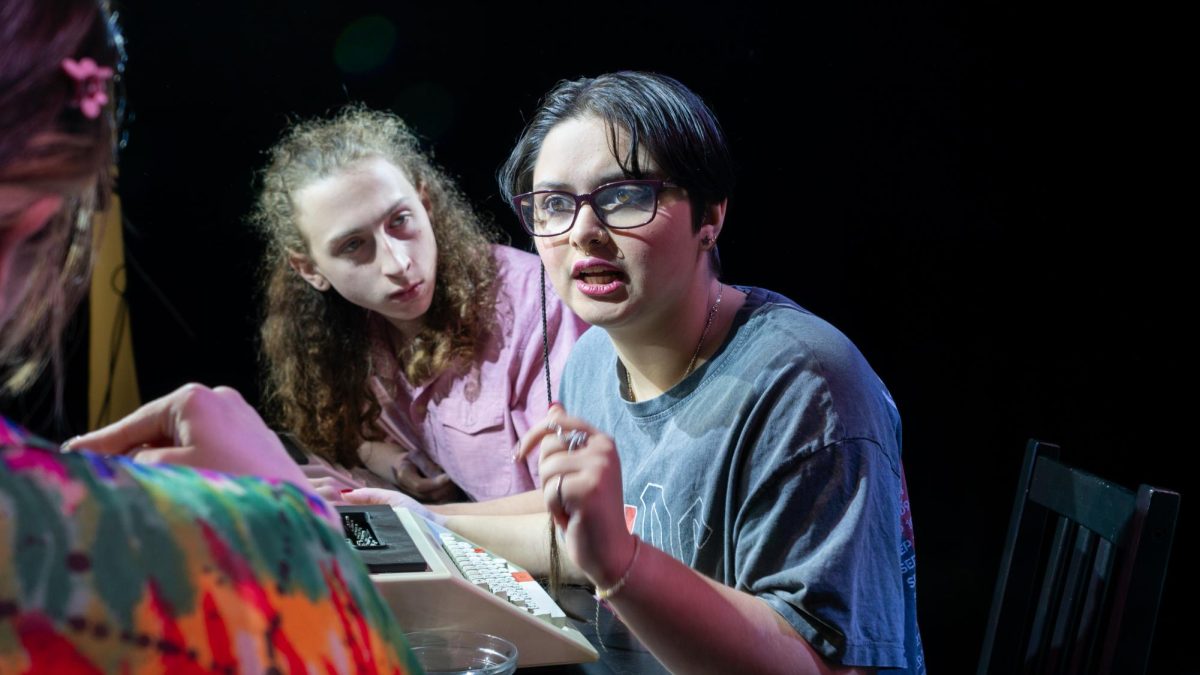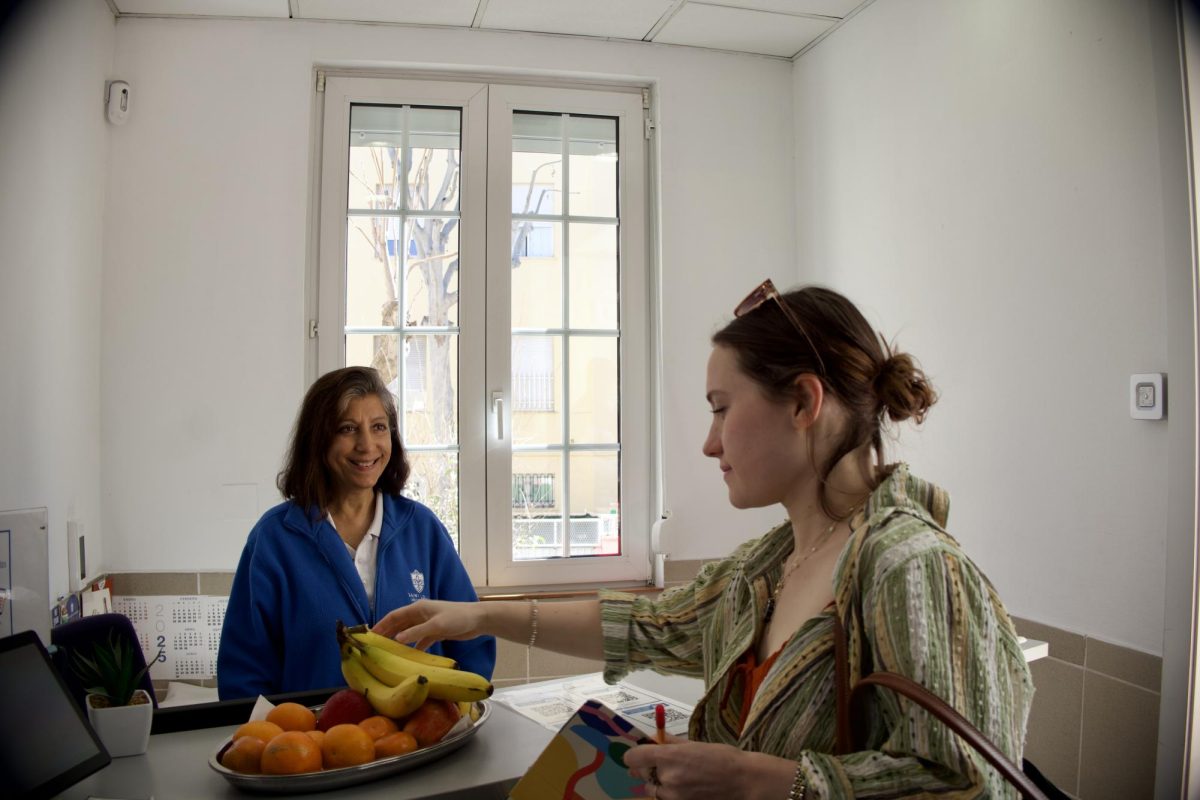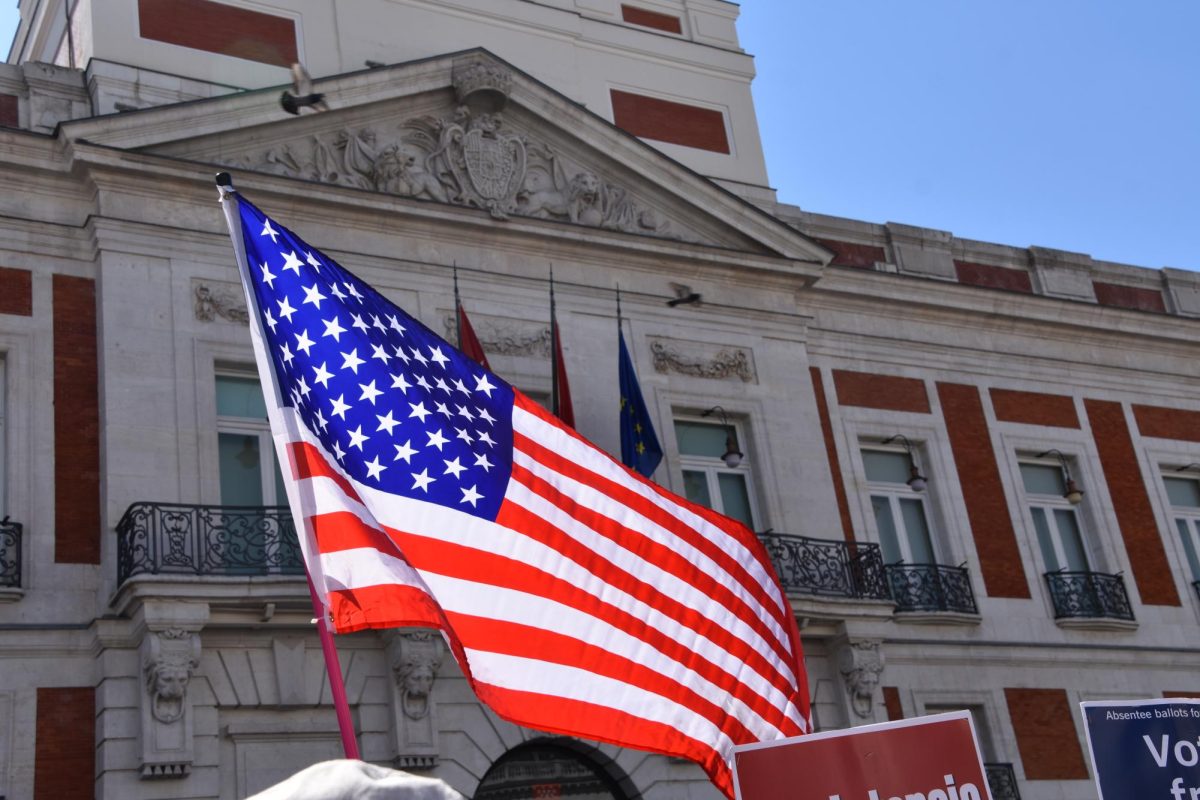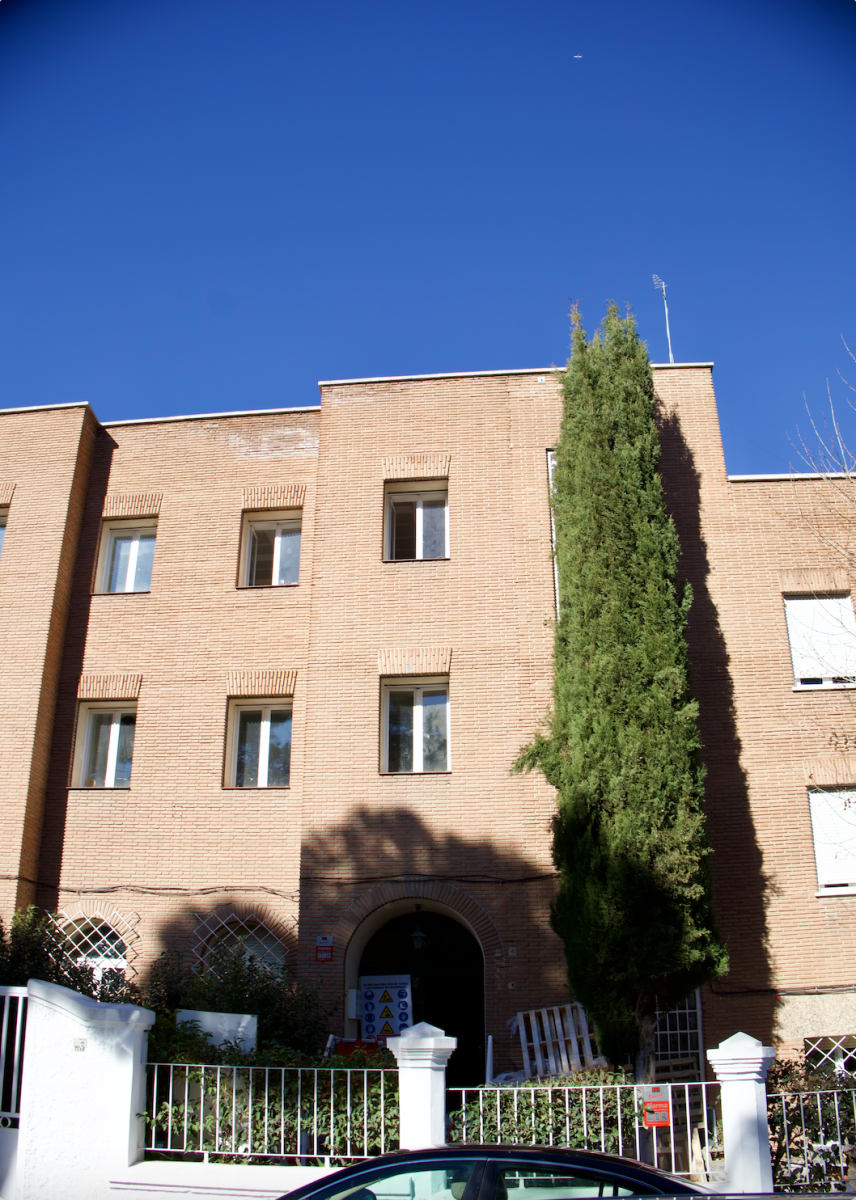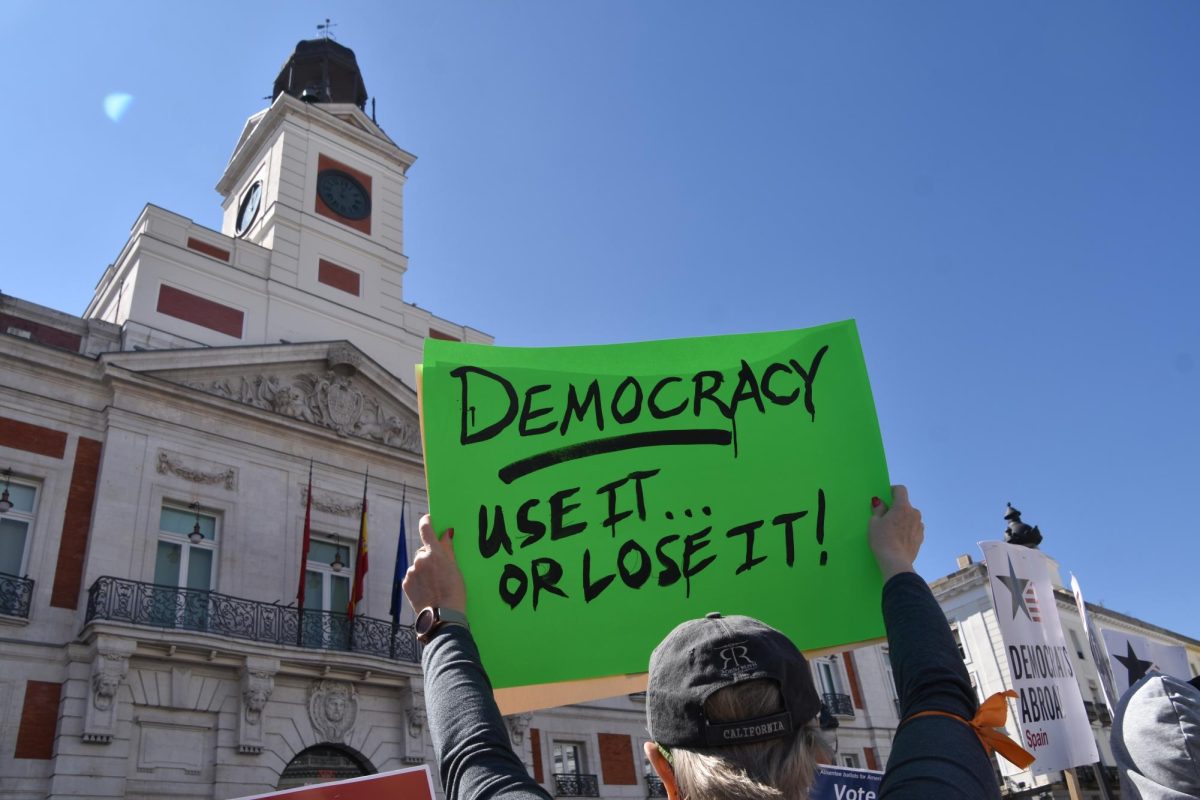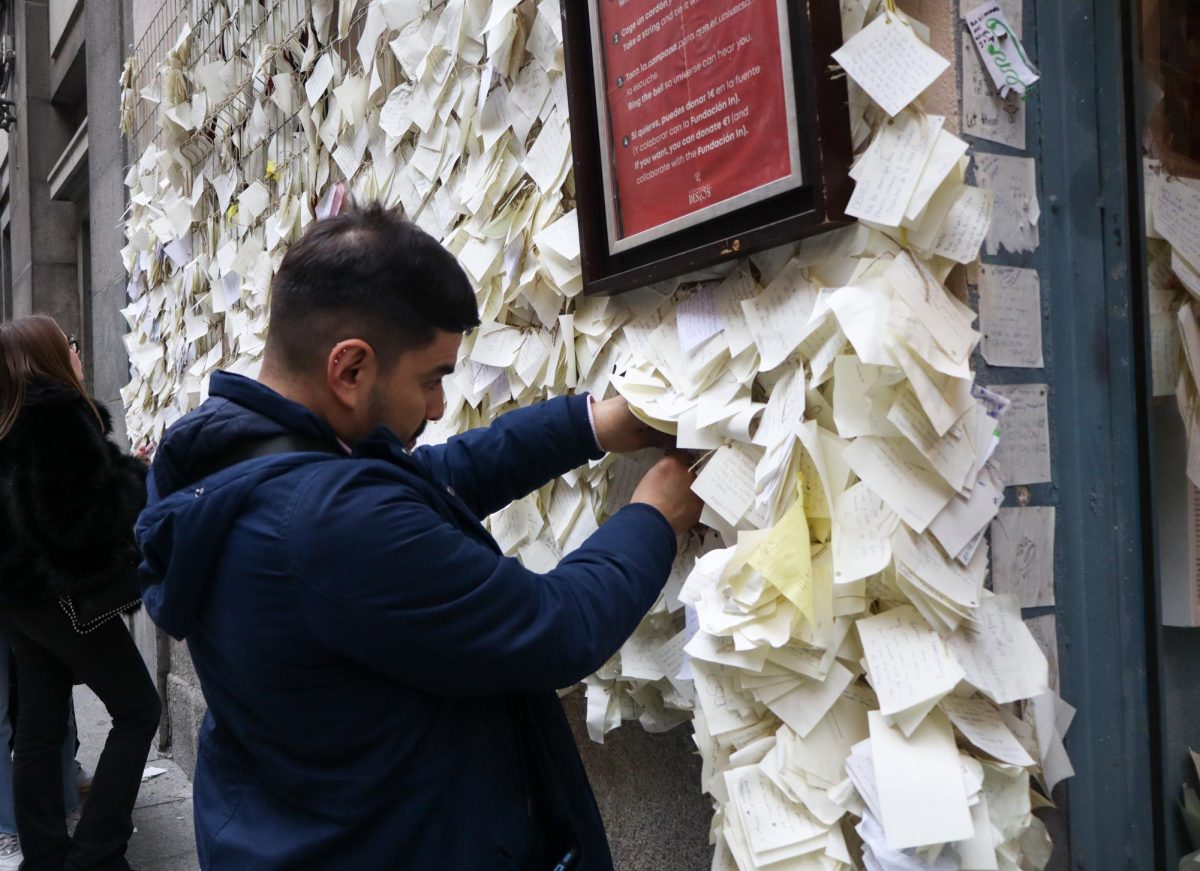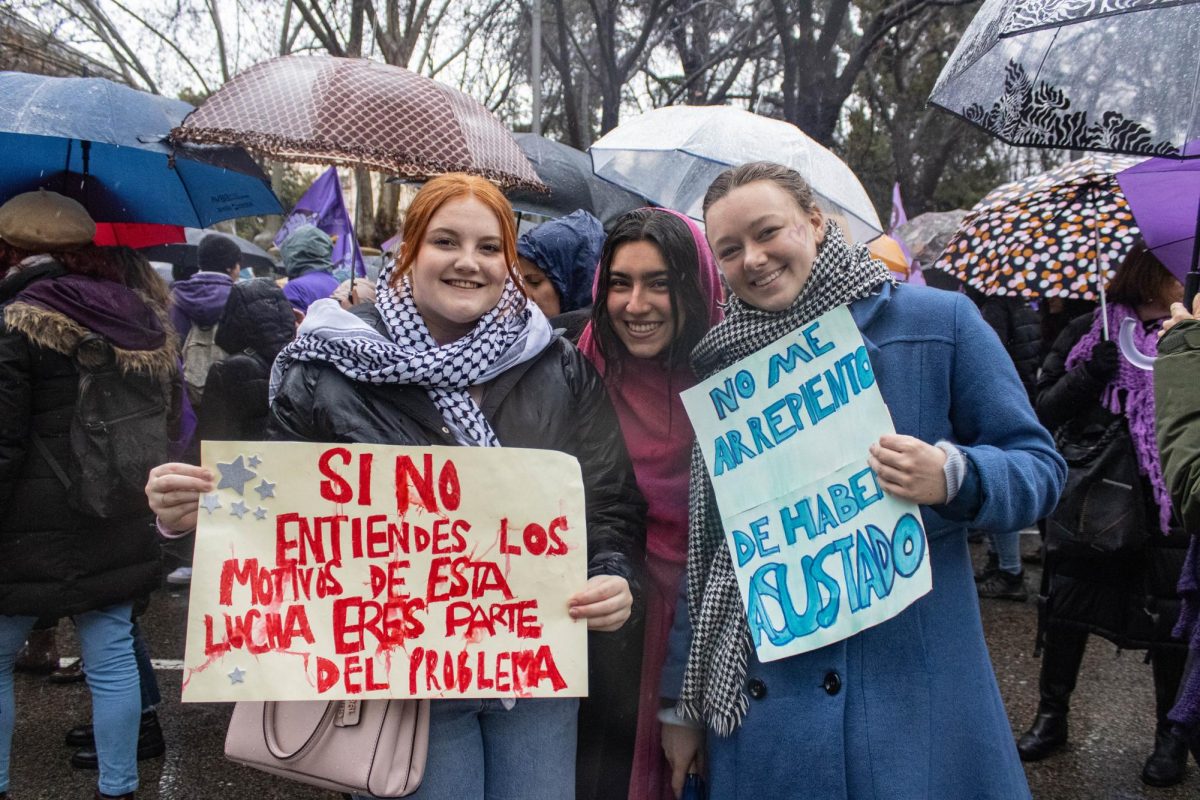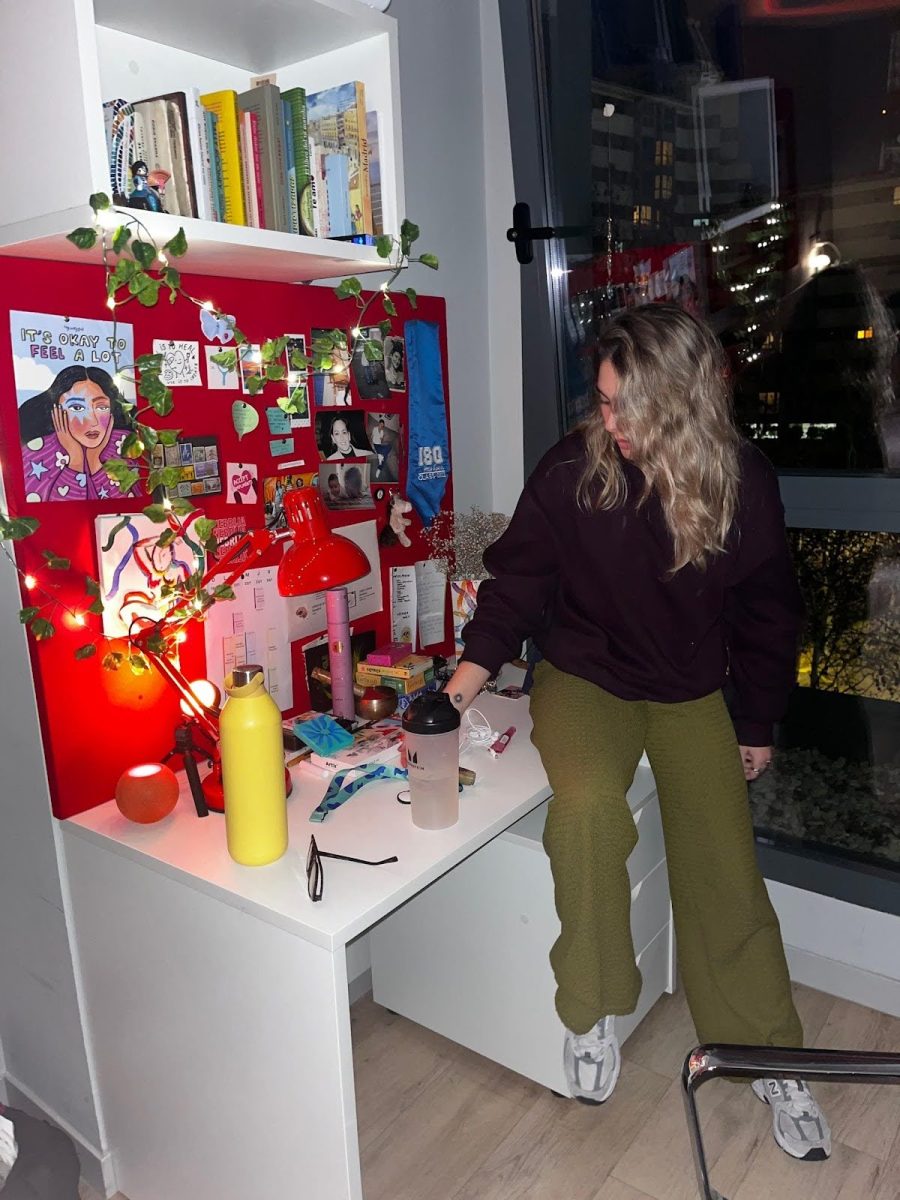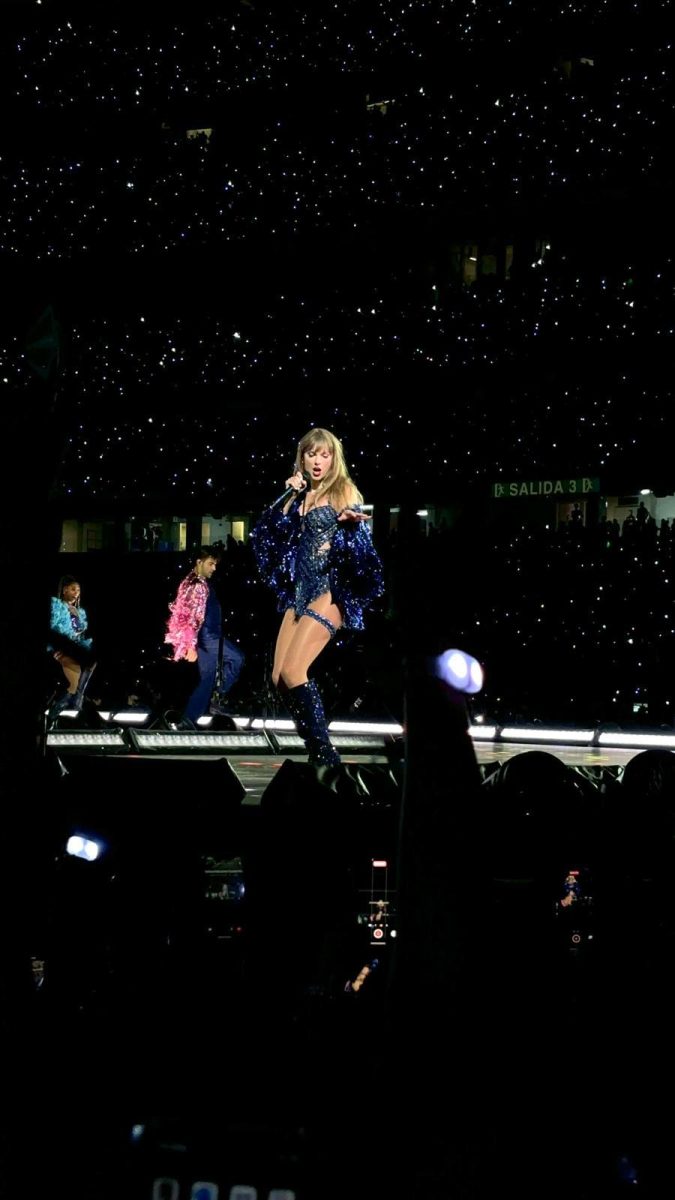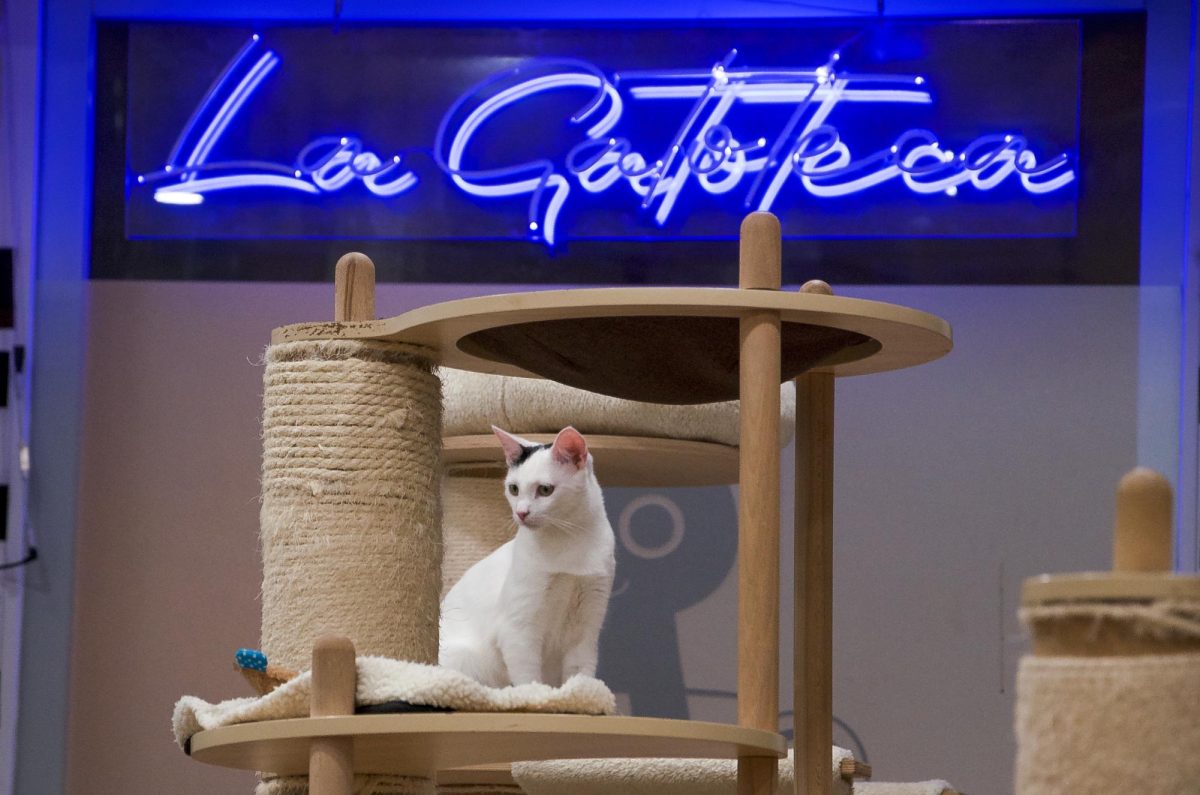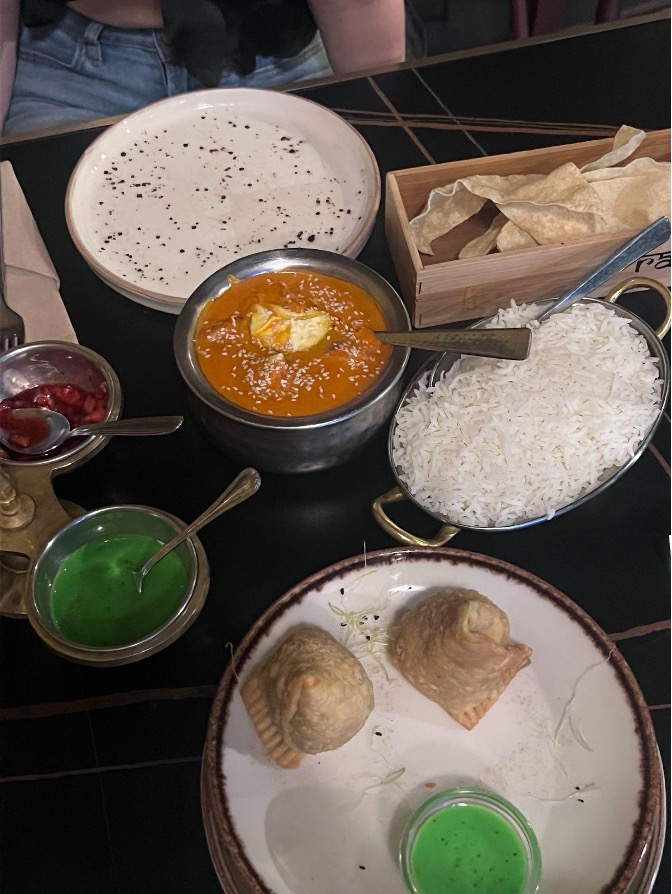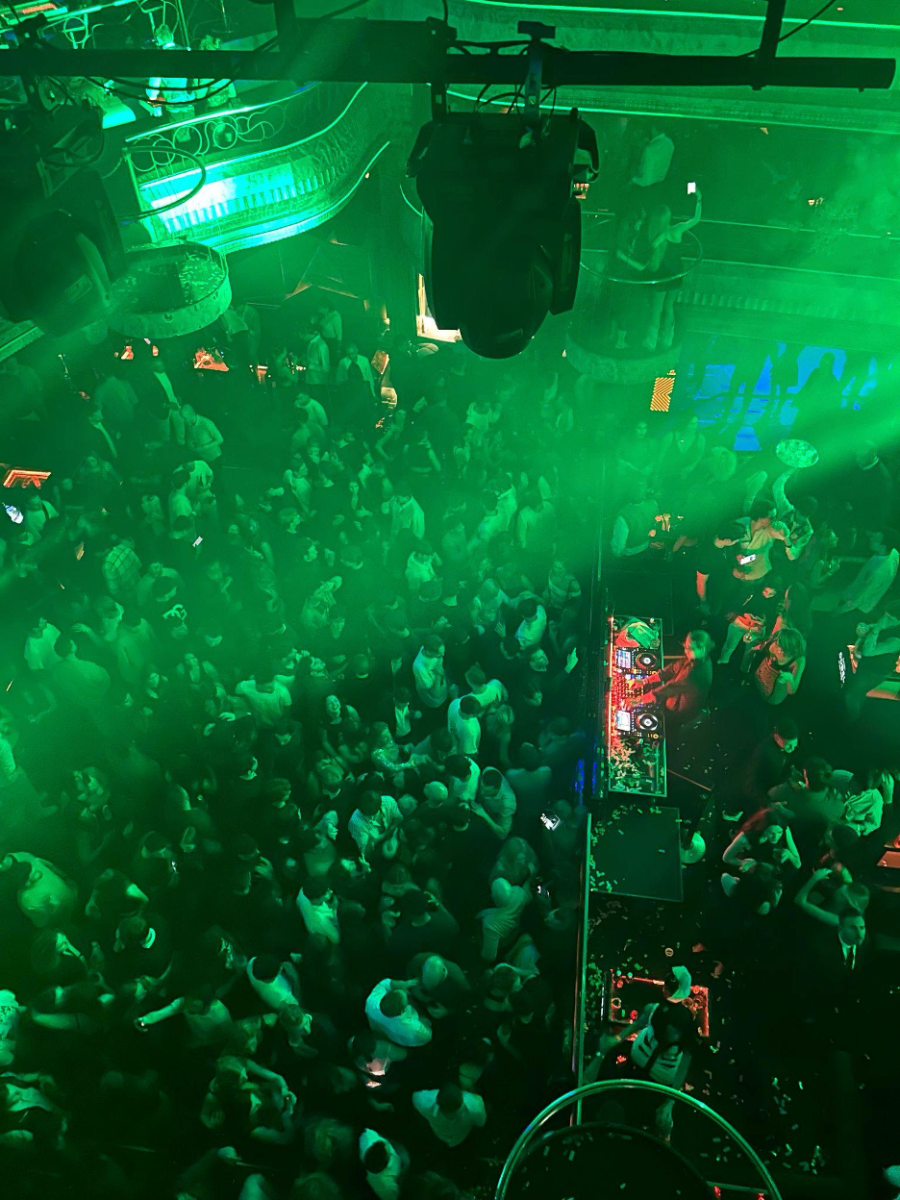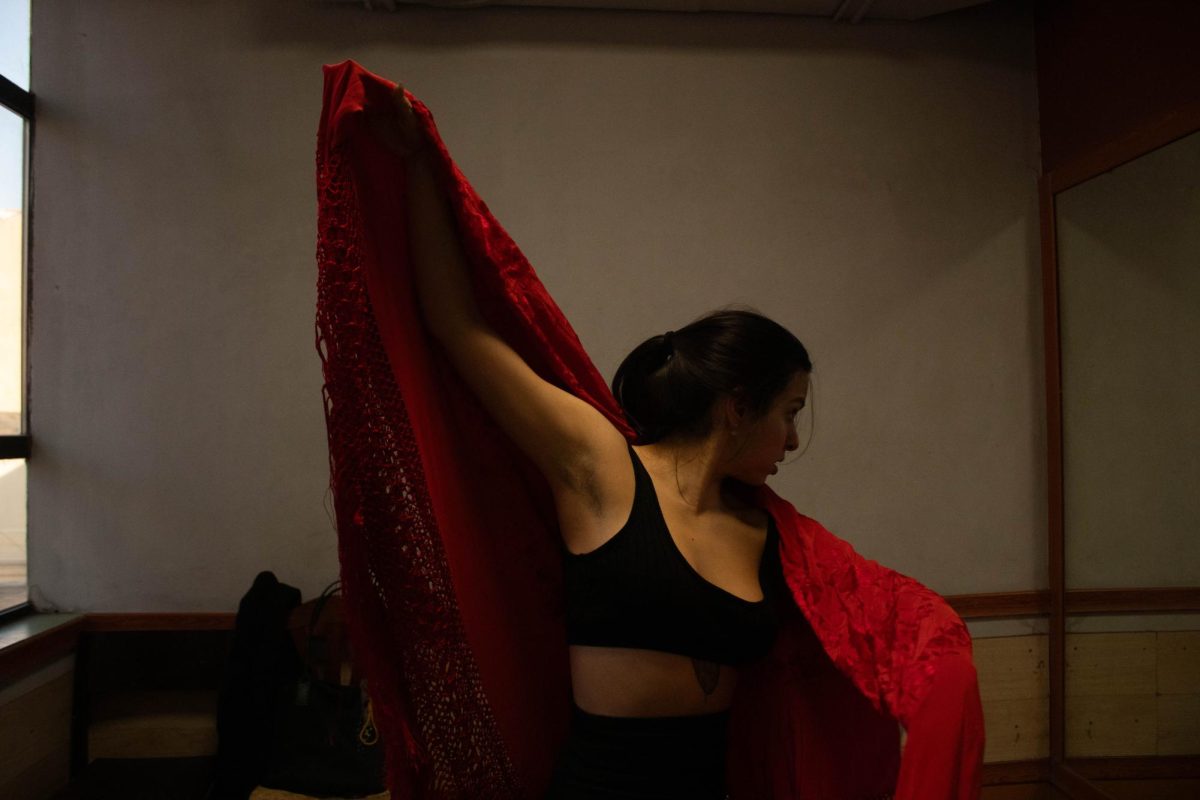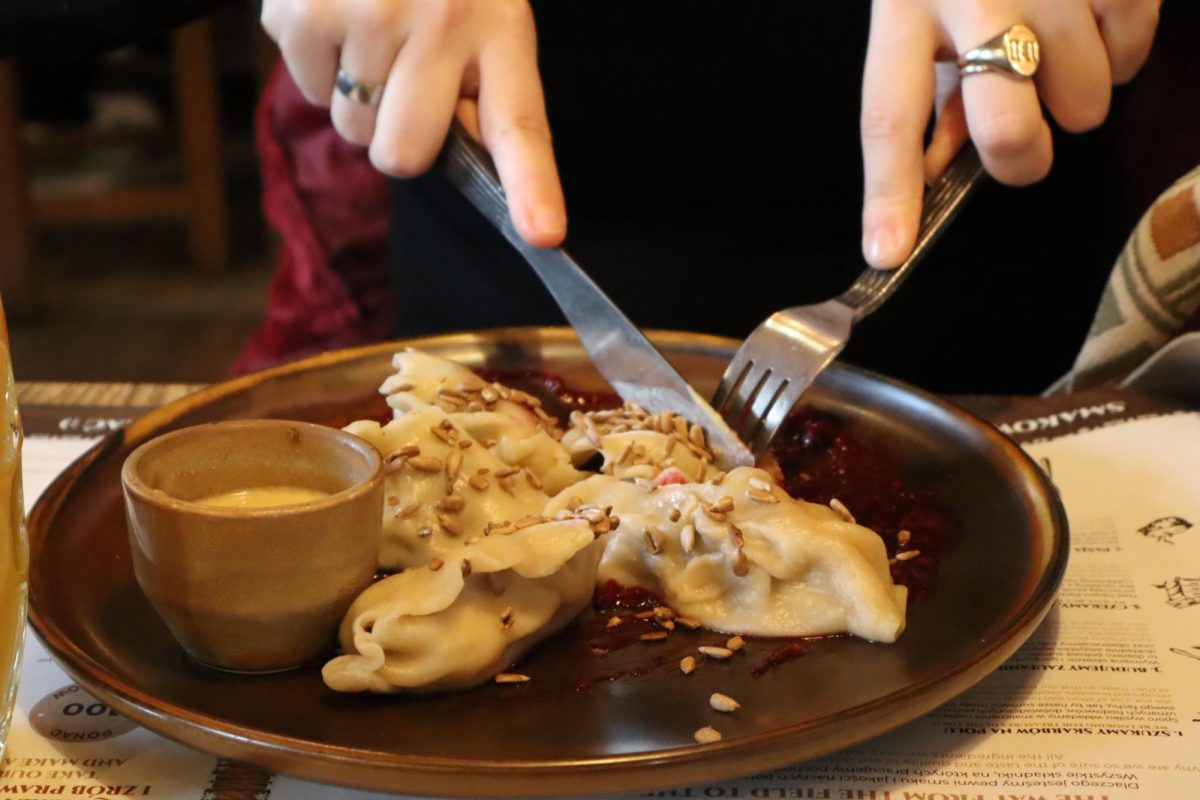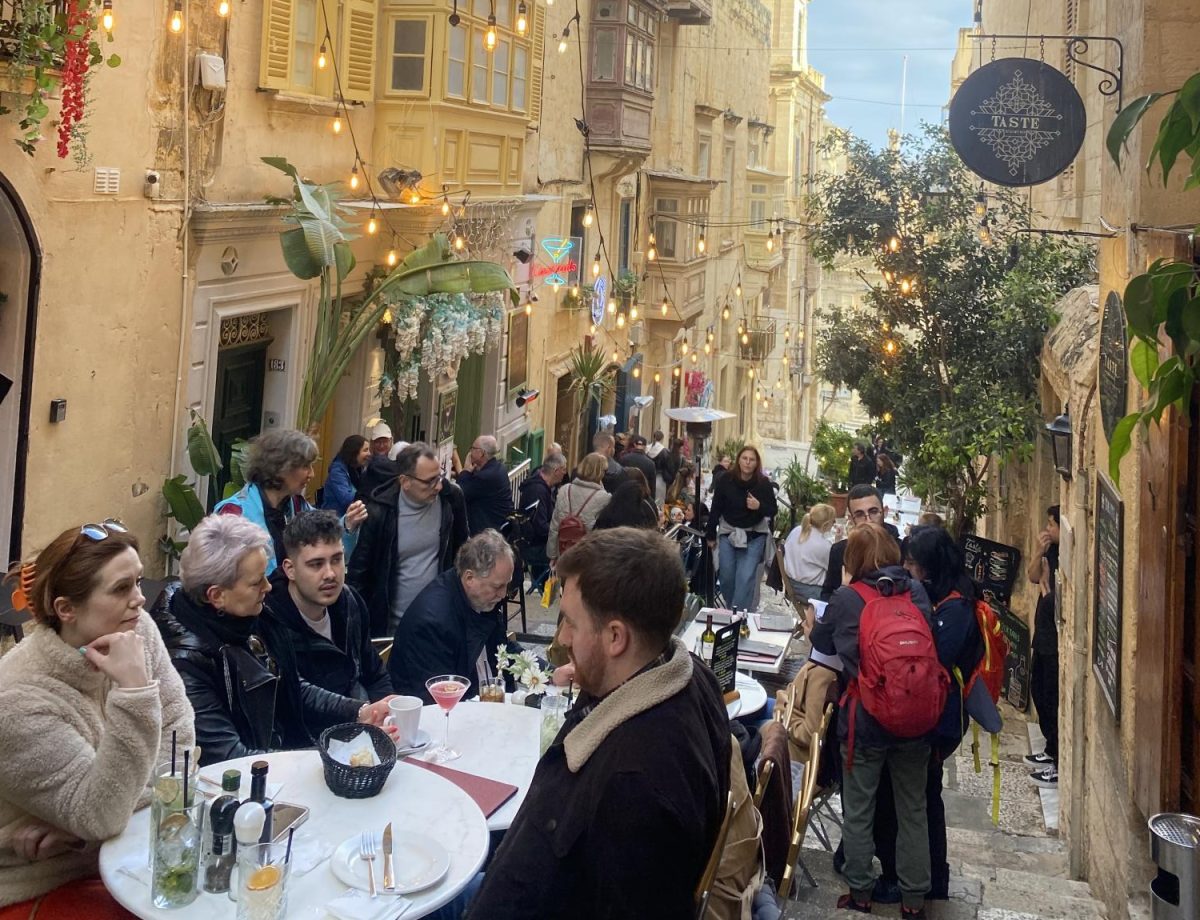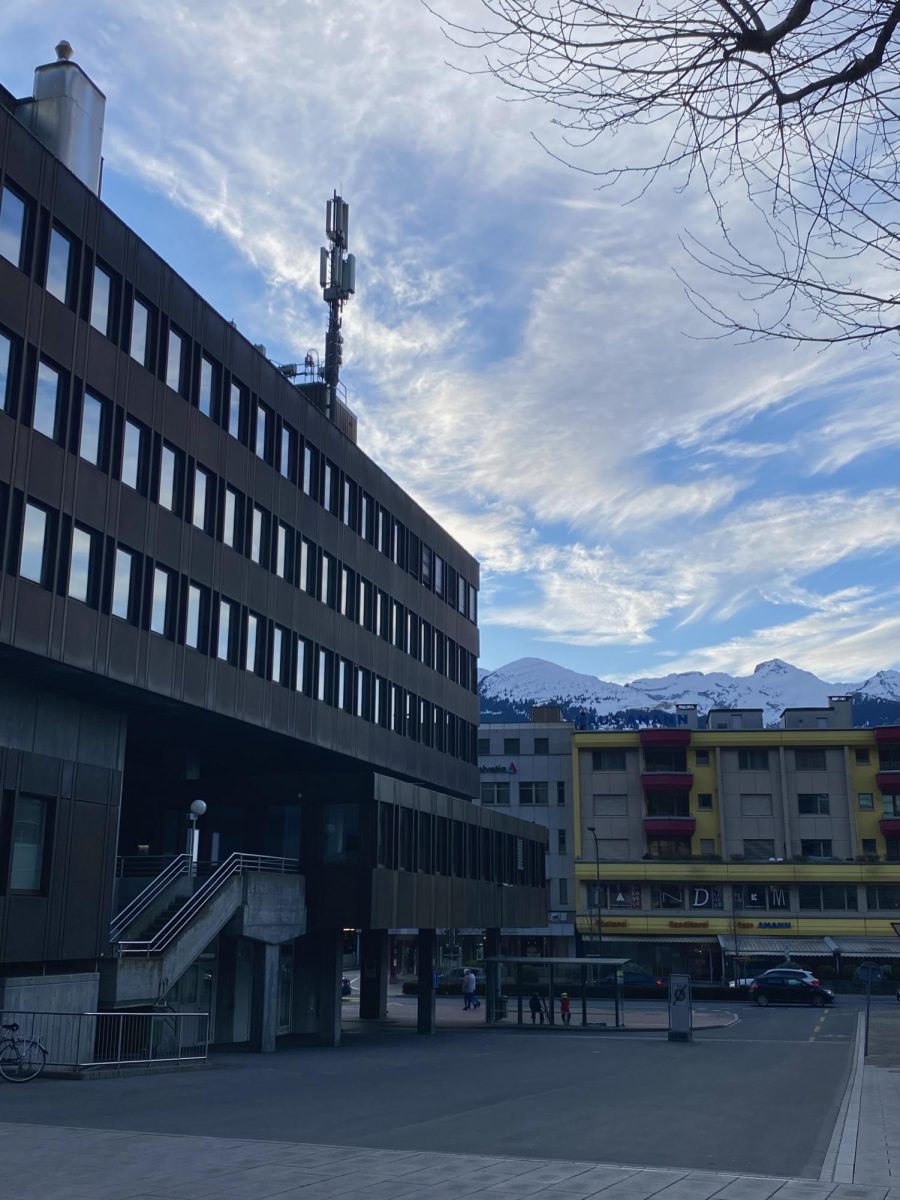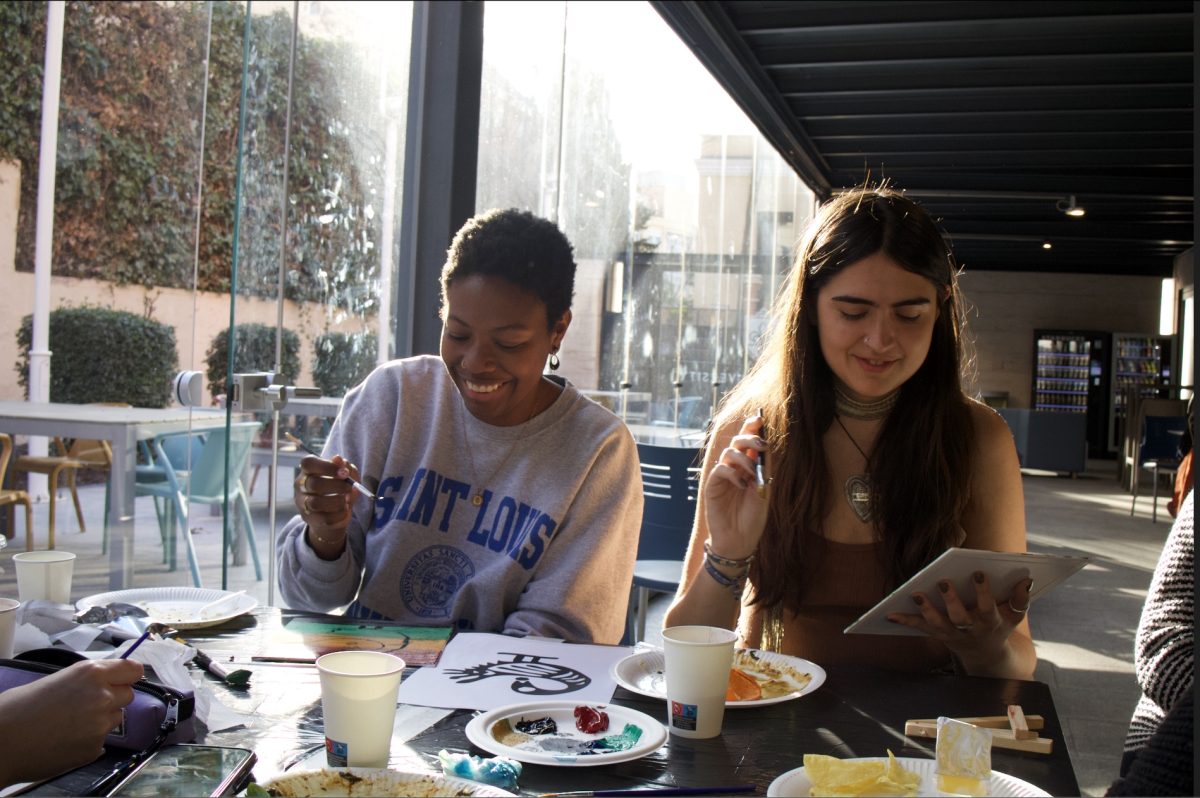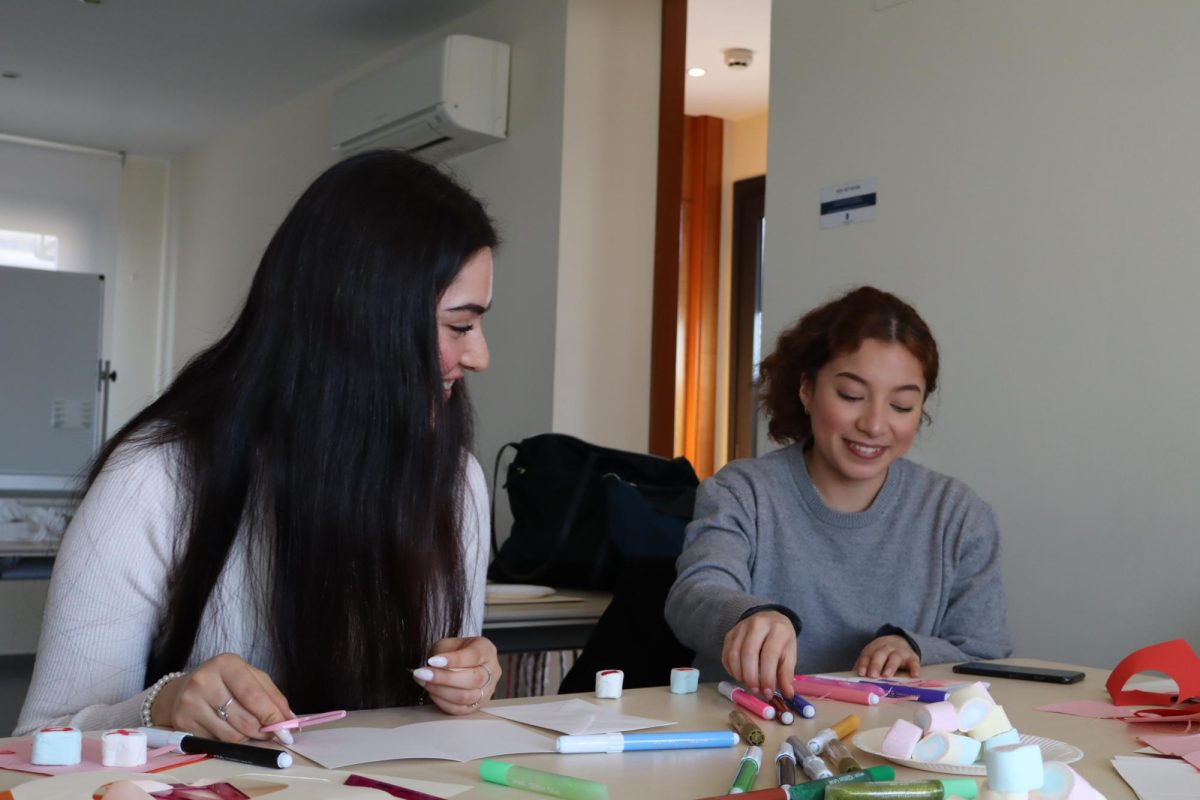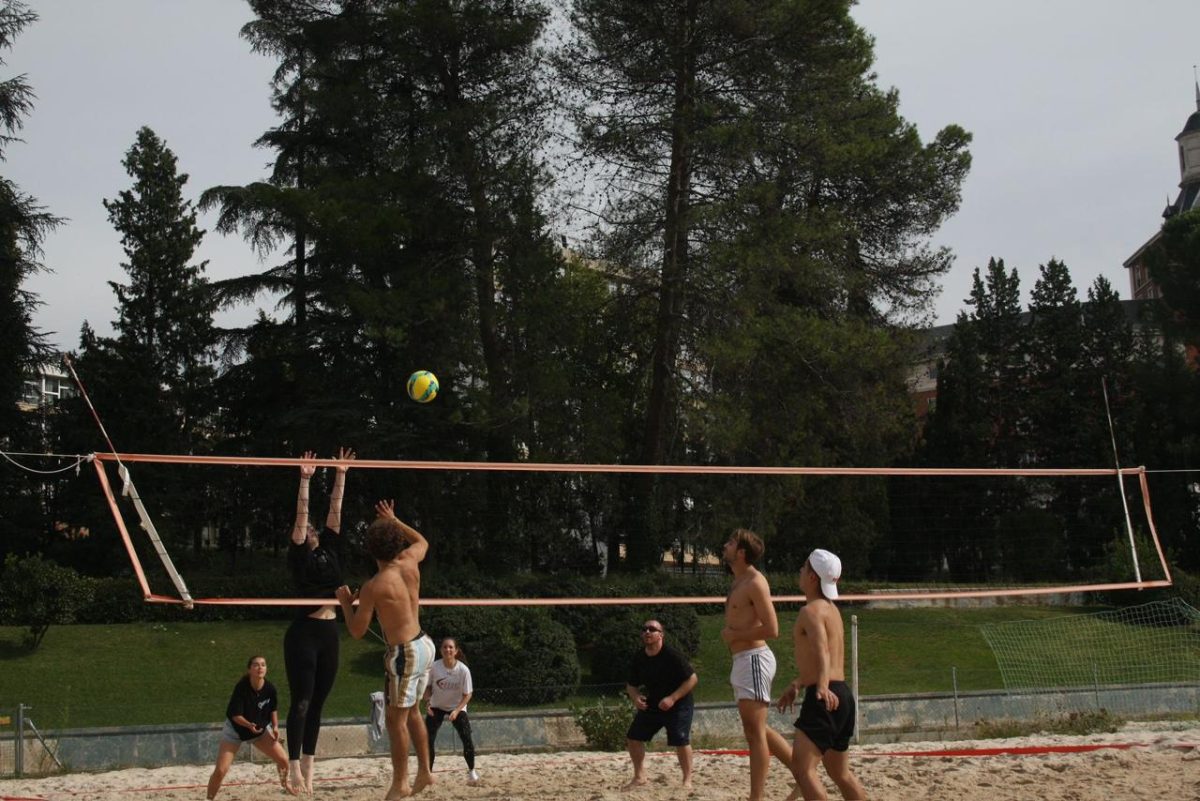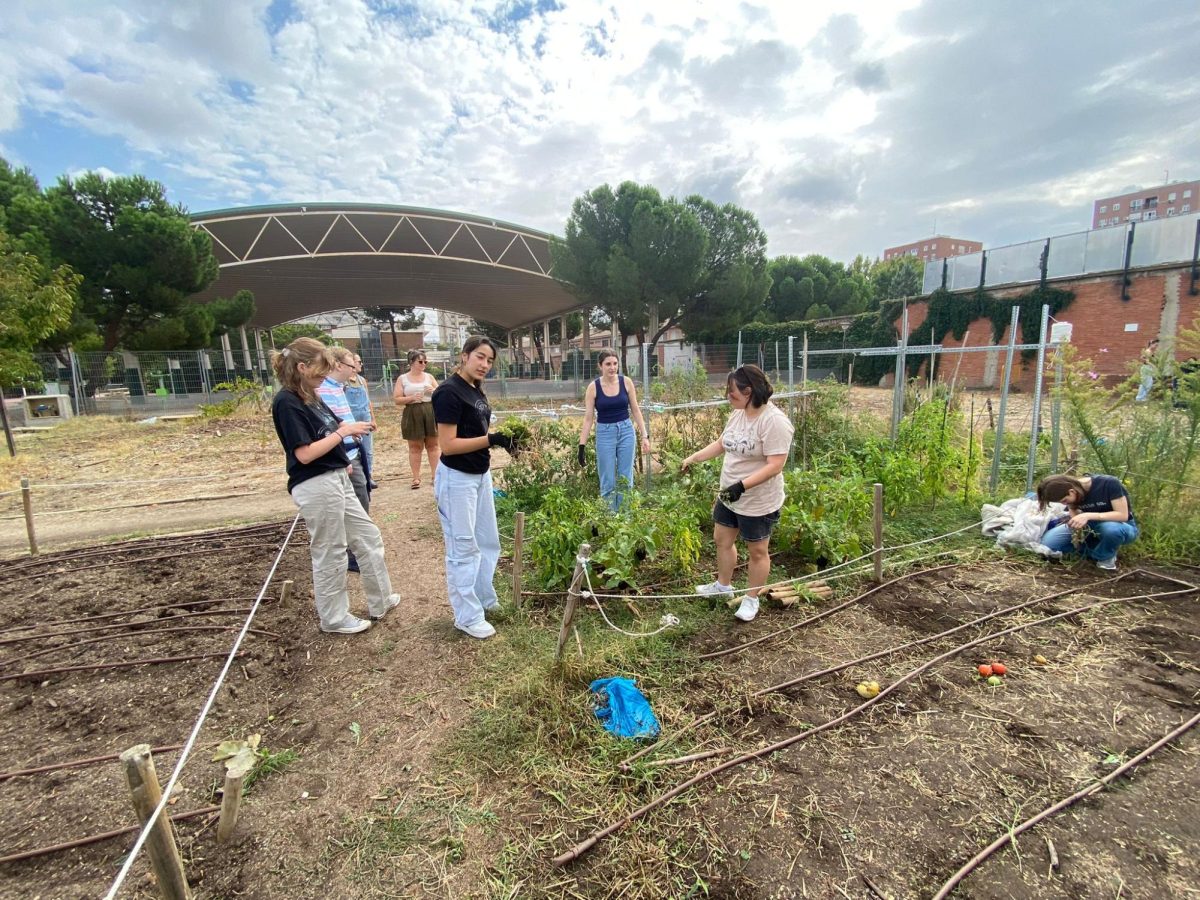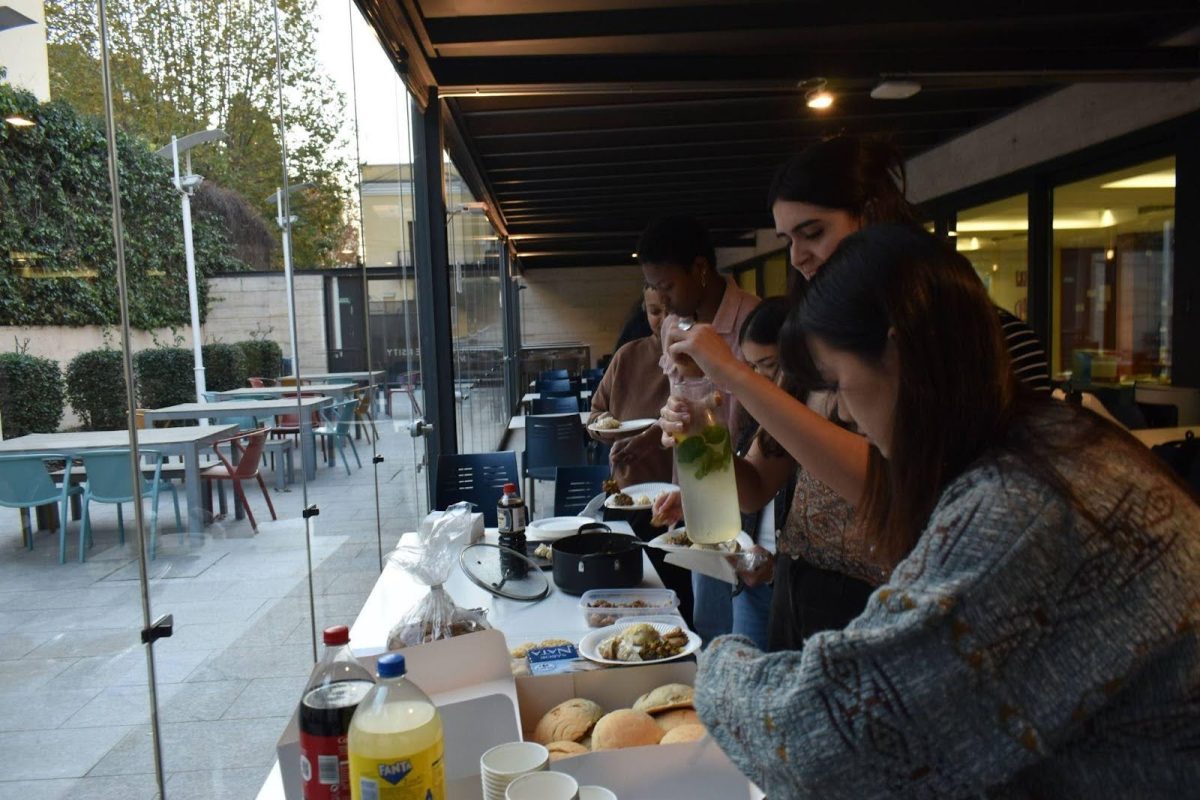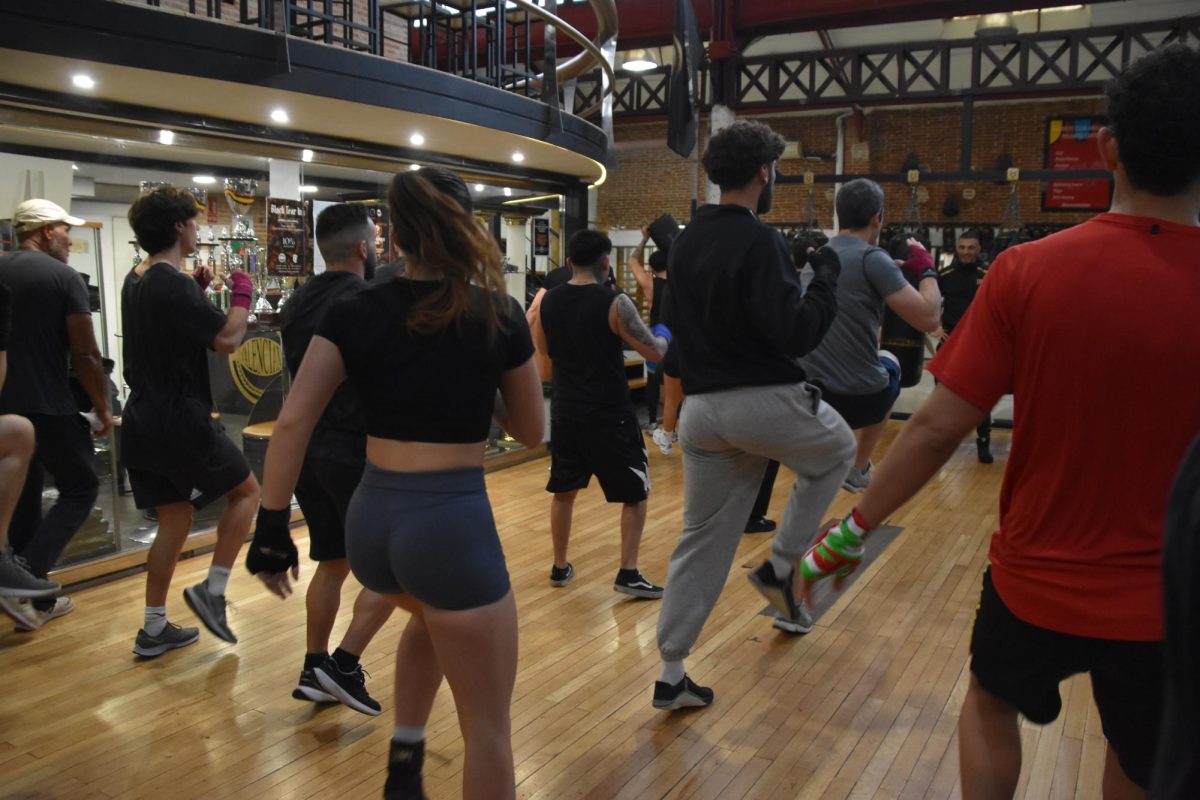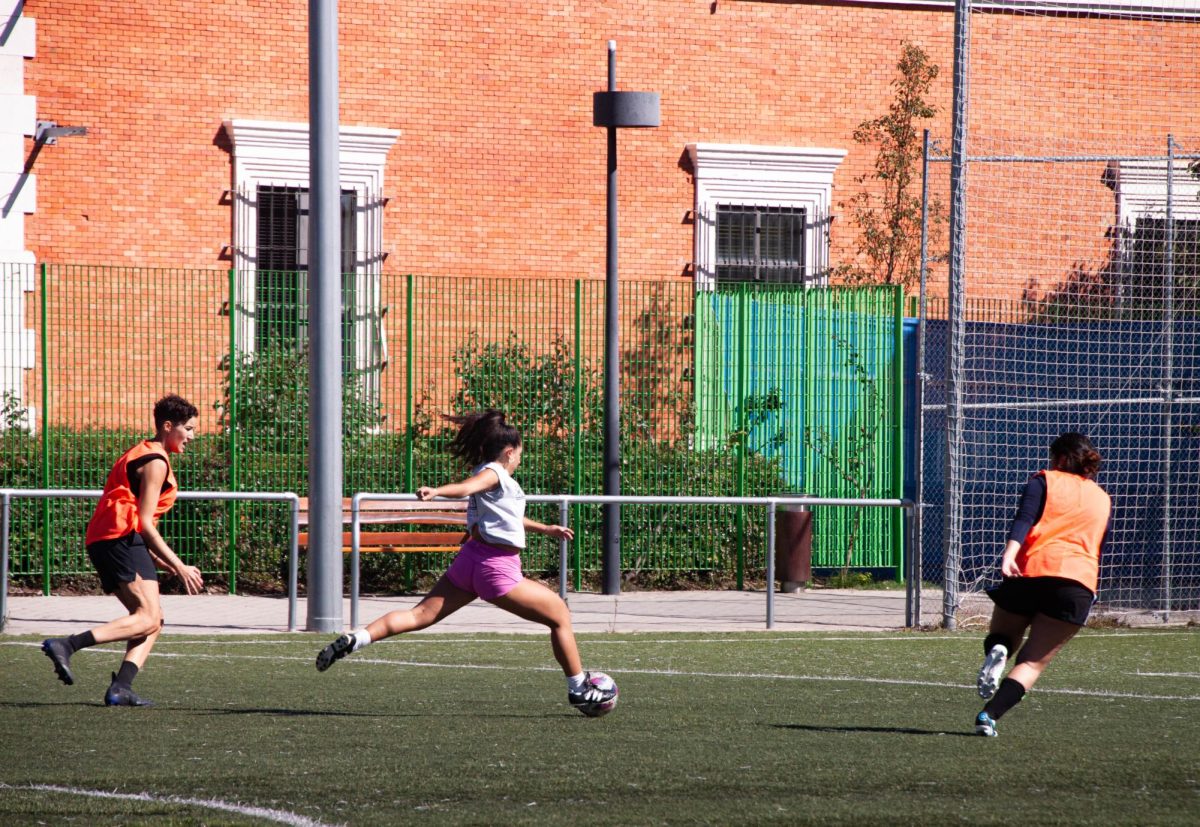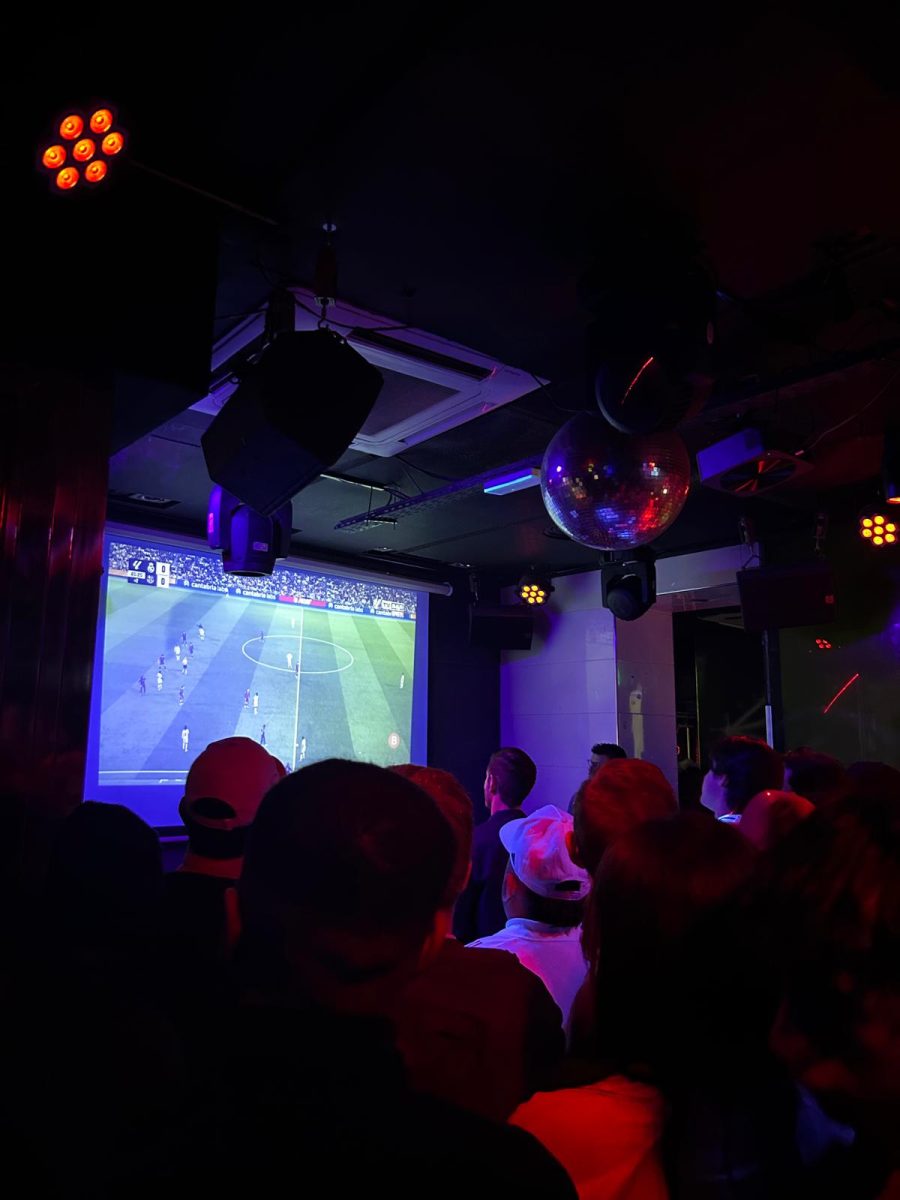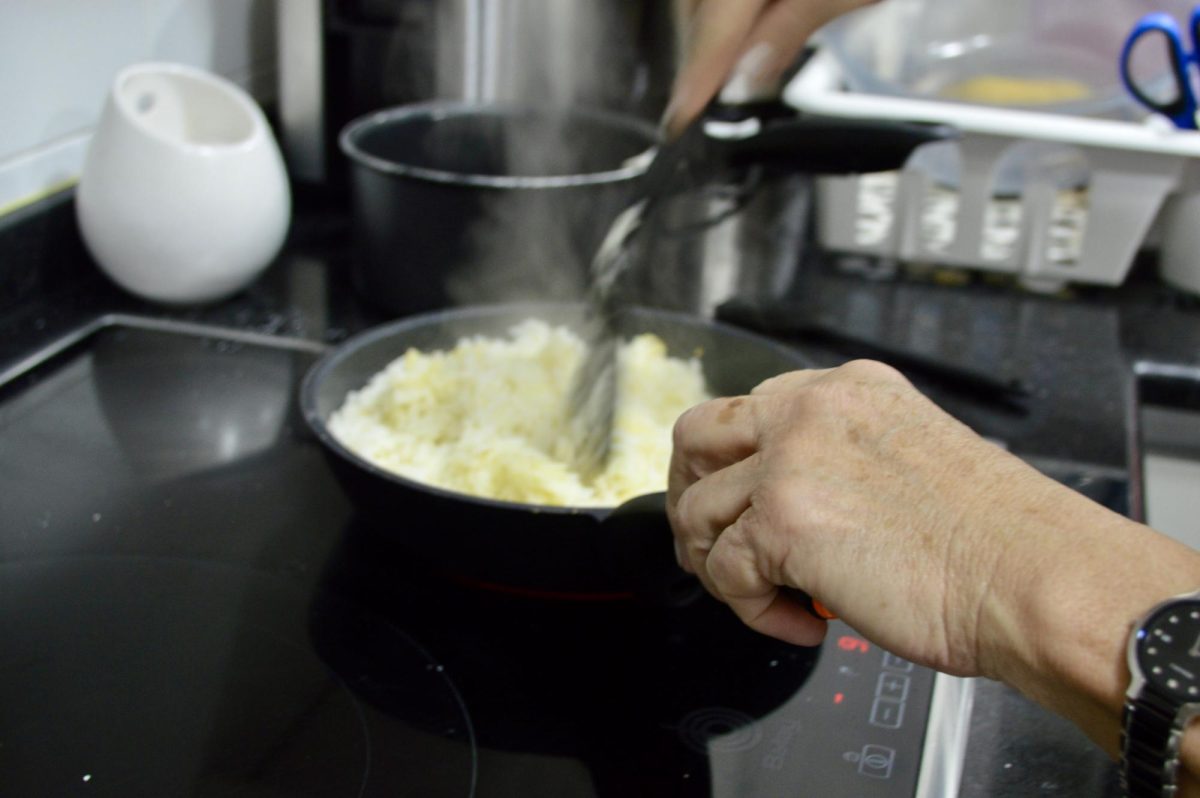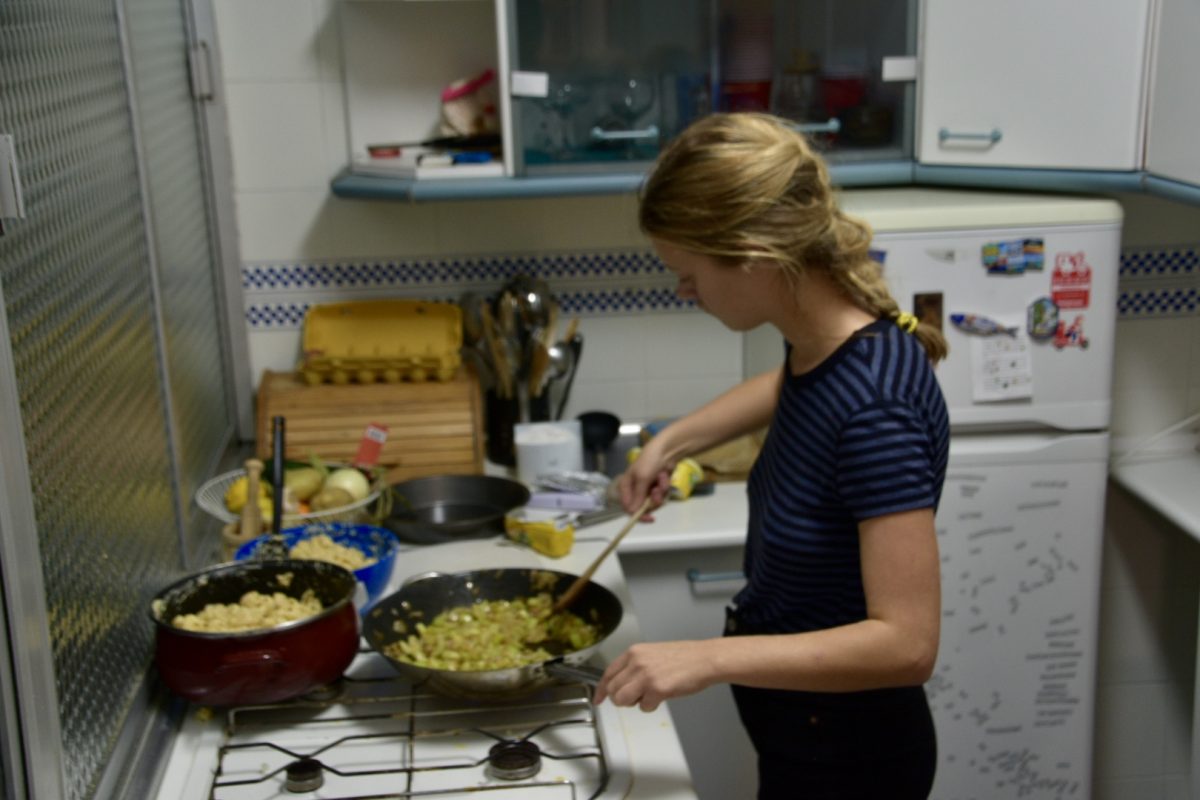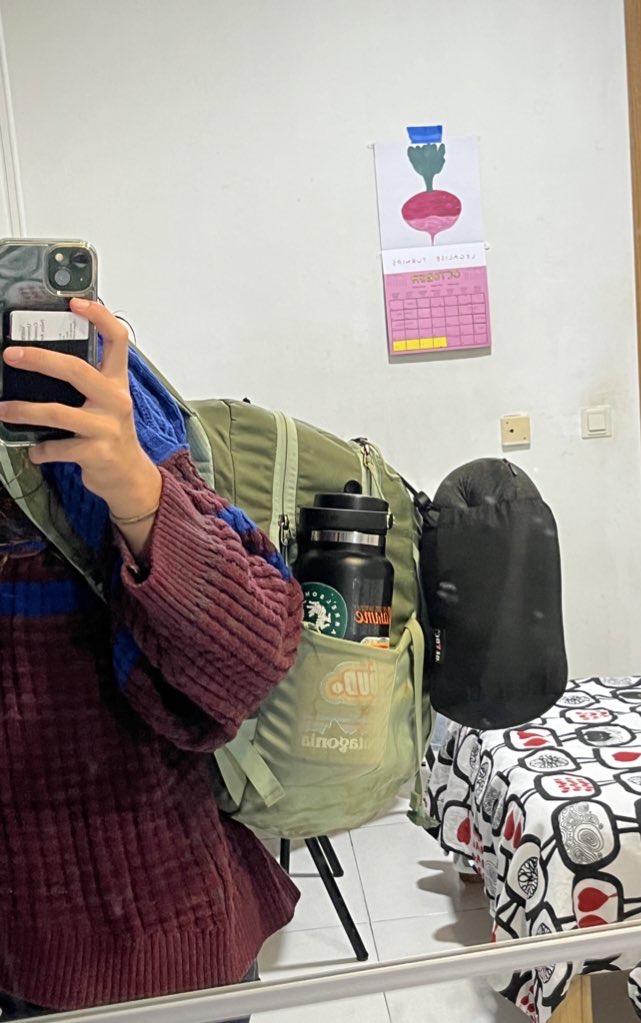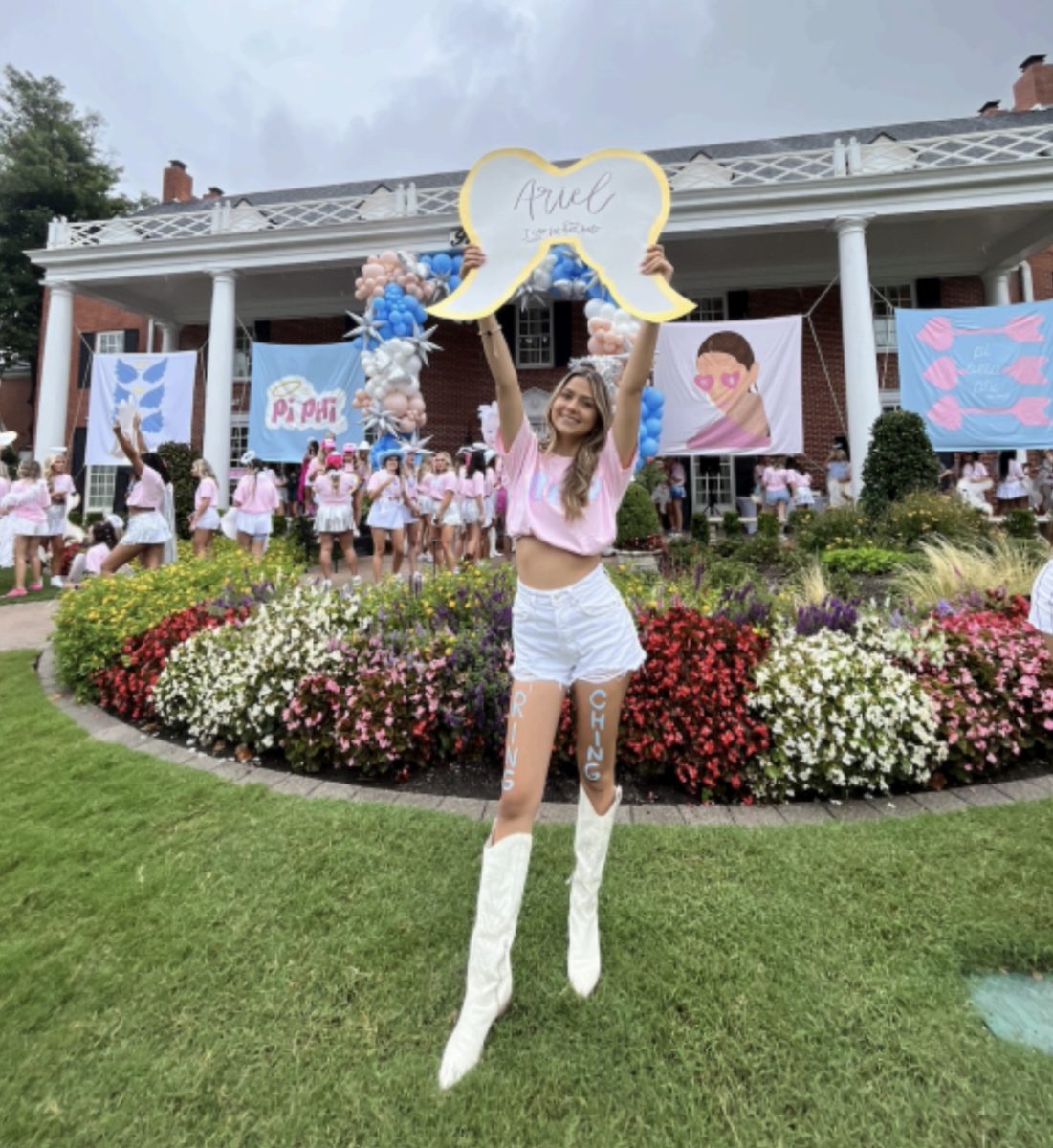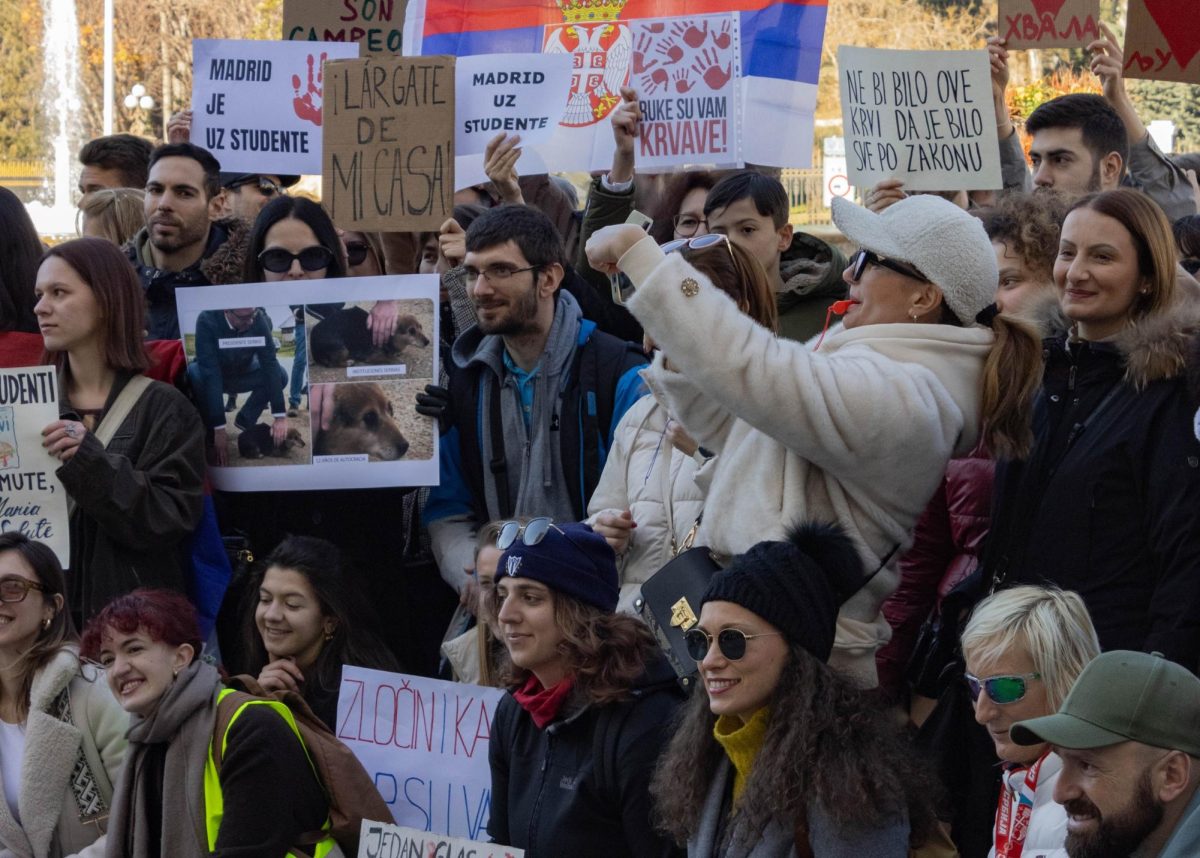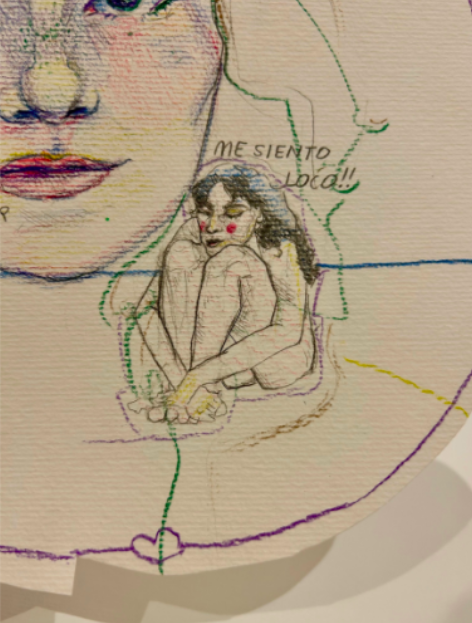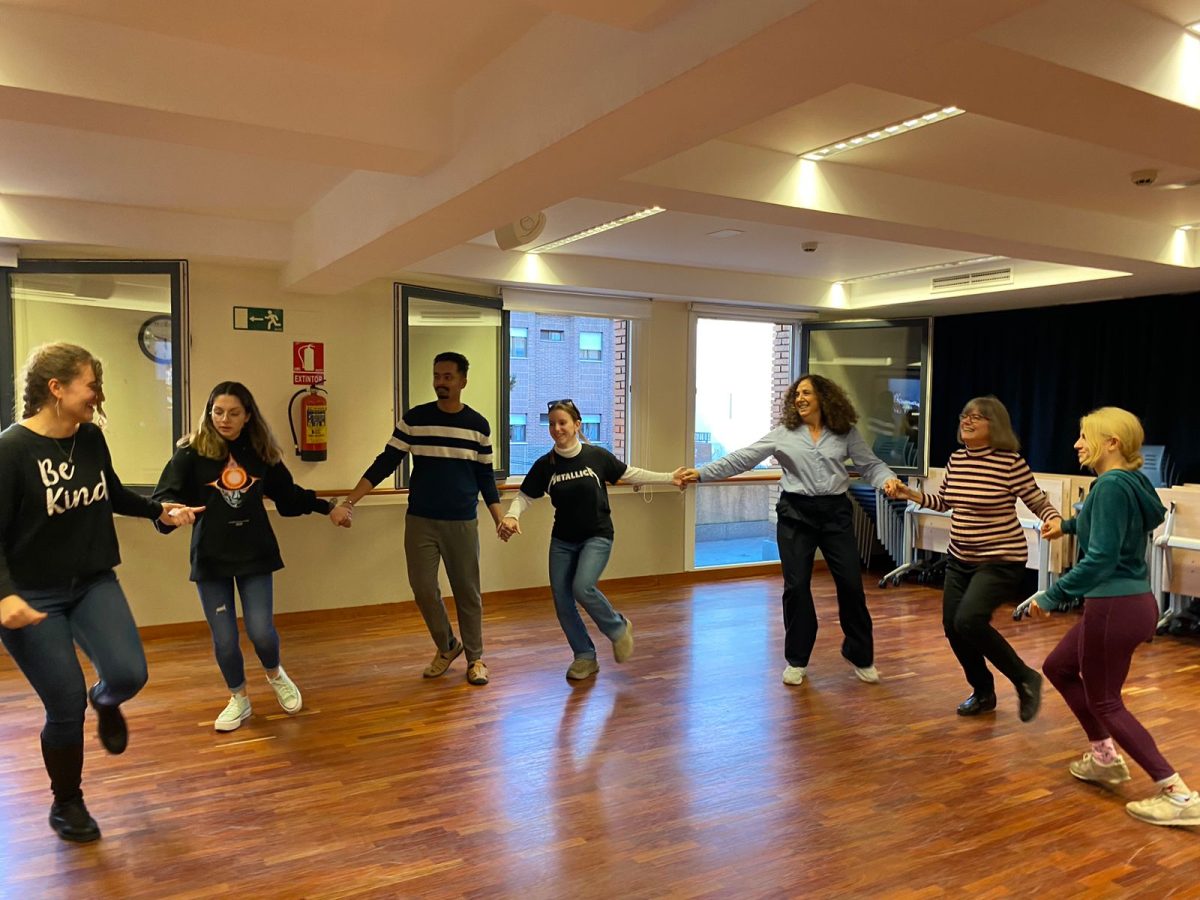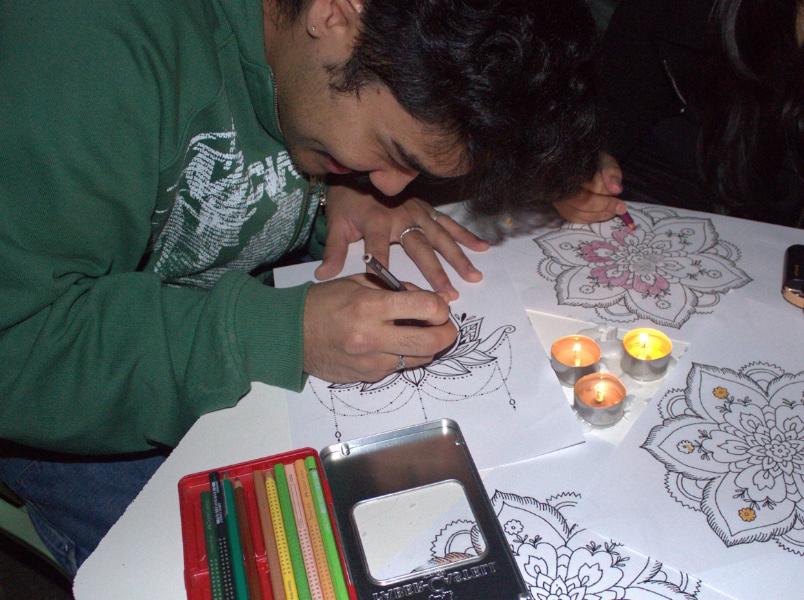Students and teachers held hands, hopped and stepped in circles to traditional Hungarian and Bulgarian melodies at the first folk dance workshop held this semester by the Balkan/Eastern European Culture Club.
The goal of the workshop was to make folklore to come to life as if circling around a campfire – and participants did literally circle around, and around, as most dances were performed in a ring.
Participants burnt through calories in the spring-like February weather as they learned six dances of increasing difficulty, three Hungarian, three Bulgarian, during the 60-minute workshop. One dance, the Dunavsko horo, is especially complex. It consists of six different pairs of steps, mostly of hops, and it is danced at midnight on New Year’s in any major Bulgarian city. The hopping reflects the cheerfulness of the occasion.
Another Bulgarian dance, the pravo horo, or straight-line dance, only consists of two steps: dancers cross one foot over the other and then hop in a line or a semi-circle. The songs, which range from four to eight minutes, gradually accelerate for dancers with stamina.
The Hungarian selection included circle dances such as “Devil’s Way” and “the Goat Dance,” performed traditionally by the Csángó people, ethnic Hungarians of Roman Catholic faith living mainly in the Romanian region of Moldavia.
Kirill Permiakov, club publicity manager, said the pravo horo was his favorite dance because it was the easiest. Linguistics professor Anne McCabe, who takes tap dancing lessons, said her favorite was the Dunavsko horo. “I really liked that one,” she said. Then, referring to the “Goat Dance,” she added: “I liked the last one too, but the complexity made it difficult to participate successfully.”
Study abroad student Jabir Rahman, from the University of Richmond, said he joined the workshop “to get more involved with the campus community and not just other study abroad students.”
For Rahman, the workshop was challenging.
“The biggest challenge was that I have never danced, or barely ever danced,” he said. “So just coordinating, and remembering steps is always difficult, but when you get to follow someone do it and everyone wants to improve, it is really cool, and a fun experience.”
Categories:
Folk Dancers Skip into Spring
The Balkan/Eastern European Club taught traditional dances from Bulgaria and Hungary at its first workshop
Workshop participants learn a Bulgarian dance.
0
More to Discover
About the Contributor
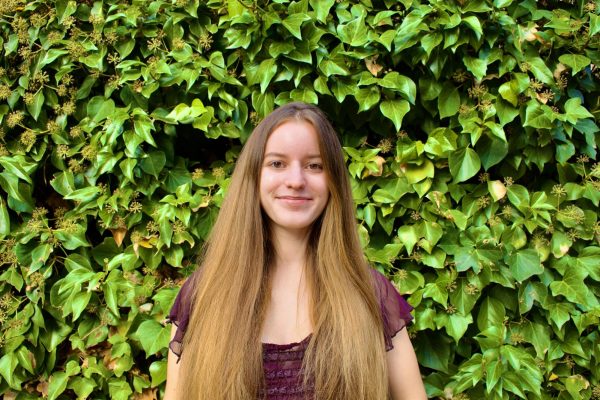
Lilla Orbán, Advice Columnist and Staff Writer
Lilla Orbán double majors in international studies and English with a minor in creative writing.
